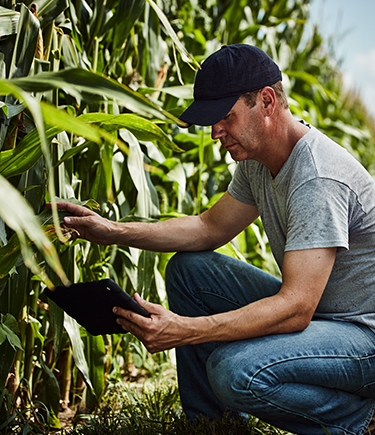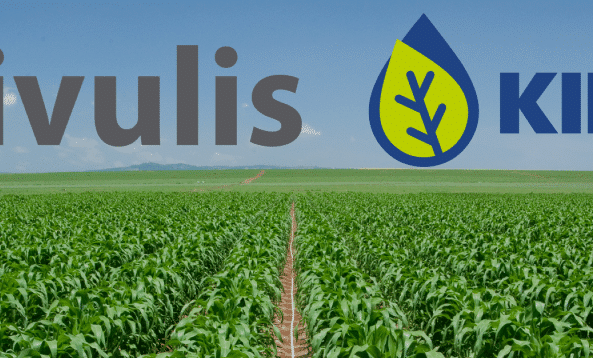
Addressing Global Water and Agricultural Challenges to Save Agriculture
By Eran Ossmy, President of the Micro Irrigation Division at Rivulis
January 2025
The global agricultural landscape is under increasing pressure. Water scarcity, labor shortages, unpredictable weather patterns, and rising demands for efficiency are intensifying the challenges farmers face worldwide. Innovative solutions are needed to optimize water usage, increase yields, and reduce operational costs.
Smart irrigation, particularly micro-irrigation solutions, is one of the most promising approaches to addressing these challenges. These systems offer a highly efficient, resource-conscious alternative to traditional irrigation methods, and adoption is rapidly growing as farmers seek better ways to manage their water resources and overall productivity.
Smart Systems to Optimize Agriculture Output
Increasingly, irrigation systems utilize sensor technology to improve the efficiency of farm operations. Providing ongoing system monitoring, these systems enable farmers to make informed decisions about what their crops need.
“With global water scarcity concerns mounting, smart irrigation offers farmers an opportunity to take greater control of their irrigation systems, resulting in more precise water and fertilizer delivery to crops, reducing wastage and improving crop health,” says Eran Ossmy, President of the Micro Irrigation Division at Rivulis.
Drip irrigation solutions deliver water and nutrients directly to the root zones of plants, minimizing evaporation and runoff. These solutions conserve water, optimize crop yields, and reduce costs – a crucial combination for farmers dealing with the growing unpredictability of weather patterns and increased profitability pressures.
Driving Efficiency through Automation
Automation is playing an increasingly important role in modern irrigation systems. Remote-controlled irrigation solutions allow farmers to monitor and adjust irrigation schedules from anywhere, using mobile apps and cloud-based platforms. This not only saves time but also reduces labor costs – a key consideration in an industry that is facing significant labor challenges.
“Automation empowers farmers to make real-time adjustments and optimize their irrigation schedules with ease,” adds Ossmy. “The convenience and efficiency of controlling irrigation remotely are game changers, making it possible for farmers to manage their operations more effectively.”
With automated systems, farmers can reduce the need for manual labor while ensuring that crops receive the optimal amount of water, leading to better yields and more sustainable practices.
Combining smart systems, monitoring, and drip irrigation
As the demand for more efficient farming grows, data-driven decisions are becoming a necessity. Precision agriculture tools tracking irrigation efficiency and crop health are helping farmers manage resources more effectively. This data can inform decisions about drip irrigation schedules, fertilizer application, and pest control, allowing farmers to reduce waste and improve overall performance.
Data analytics provides insights for better long-term planning and resource allocation, optimizing water usage, and minimizing unnecessary expenses. As these technologies evolve, they will play an even larger role in transforming farming operations and addressing global food scarcity.
A farmer uses a mobile app to control the irrigation system.
Alternative Water Sources: Reducing Dependence on Freshwater
Some regions face freshwater scarcity, and alternative water sources are becoming increasingly important. Recycled water and rainwater harvesting systems emerge as key solutions for irrigating crops. These alternative sources reduce the dependency on freshwater, ensuring that crop production continues in areas that face water shortages.
Innovative solutions in micro irrigation, such as using treated wastewater, create new possibilities for farmers to sustain their crops while minimizing the impact on local water resources. These practices are important in water-stressed regions, where access to fresh water is limited, yet agricultural production remains vital.
Regenerative Irrigation Practices: A Long-Term Strategy
Regenerative agricultural practices, which focus on improving soil health and increasing water retention, are becoming increasingly popular among farmers looking to ensure long-term productivity. Practices such as crop rotation, the use of organic compost, and reduced tillage improve soil structure and reduce the need for frequent irrigation.
Incorporating regenerative techniques into irrigation systems means farmers can enhance water efficiency, boost soil fertility, and build more resilient farming operations. These long-term practices help improve sustainability and water retention in the soil, which is essential in coping with variable rainfall patterns.
The Future of Agriculture: Rising to Global Challenges
As we look to the future, agriculture faces several global challenges. Water demand is expected to exceed supply by 40% by 2030, creating increasing pressure on farmers to make better use of available water. At the same time, climate volatility, labor shortages, and unpredictable weather patterns make farming operations more complex and costly.
“Farmers are facing significant challenges, from unpredictable weather patterns to rising input costs,” says Ossmy. “Innovative irrigation solutions like smart irrigation and automation, when coupled with the efficiencies of drip irrigation, can help farmers navigate these complexities, offering economic and environmental benefits.”
As the agricultural industry continues to evolve, the need for innovative irrigation solutions and more efficient water management will become even more critical. The ability to reduce water and fertilizer usage, increase yields, and minimize operational costs will be essential for ensuring the long-term viability of agriculture.






